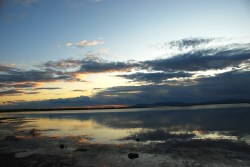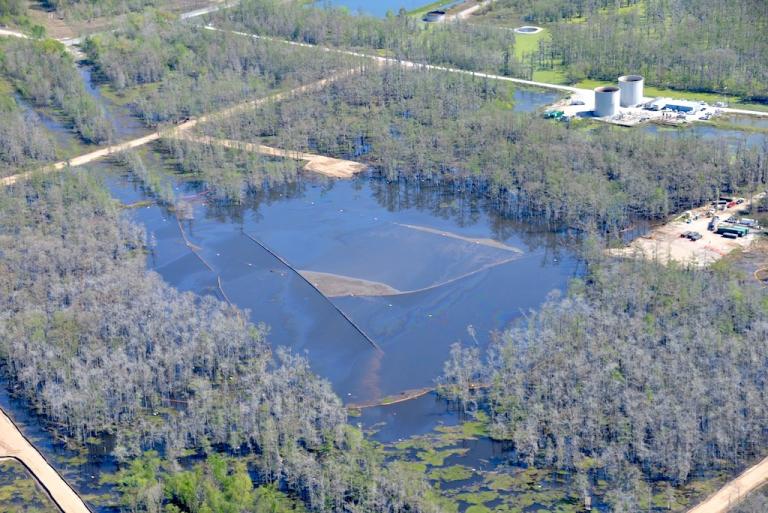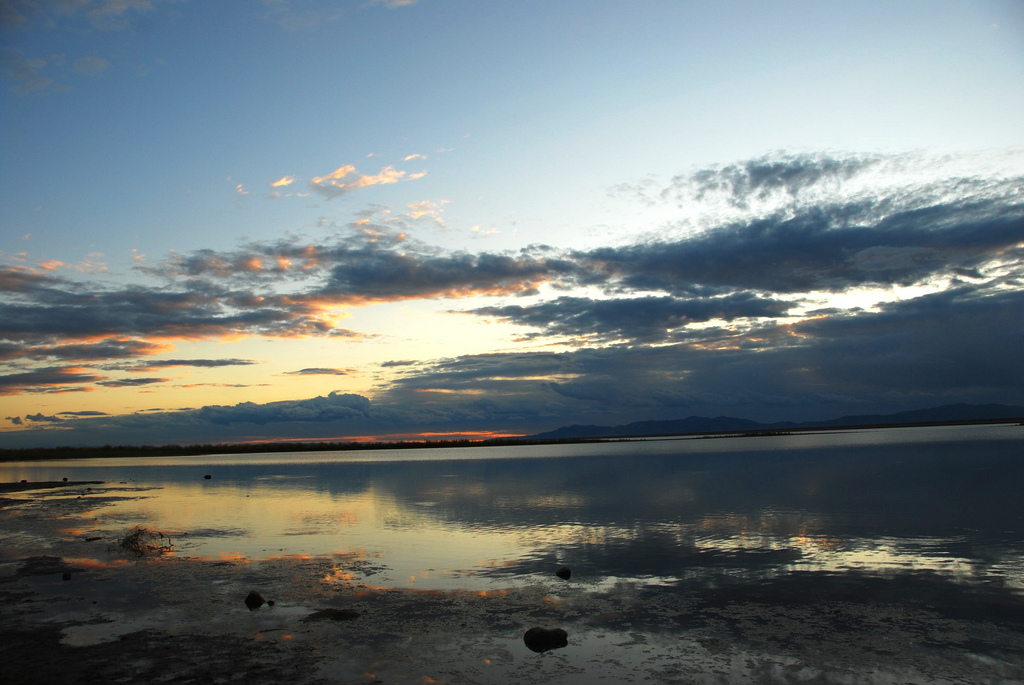
Brian YeungBeaver dams prevented diesel from reaching Willard Bay.
Chevron’s third pipeline spill in Utah in as many years on Monday released hundreds of barrels of diesel, polluting a river, coating beavers with the slick, and leading to the closure of a state park and the evacuation of campers.
Dozens of cleanup workers are mopping up the fuel along the northeastern edge of the Great Salt Lake. An estimated 4,200 to 6,300 gallons of fuel leaked after a pipeline laid in 1950 ruptured.
The pipeline was shut down after the leak was detected. Diesel was blocked from flowing into the wildlife-rich waters of Willard Bay by a series of beaver dams.
Two hero beavers covered with diesel were rescued. The dam where they lived will be torn out.
“From the wildlife perspective,” said Utah Division of Wildlife official Phil Douglass, “we are obviously very concerned about how this will impact the wildlife and the fishery that exists in that area.”
Willard Bay comprises nearly 10,000 acres of fresh water that is located atop the Great Salt Lake flood plain north and west of Ogden. In addition to wildlife, it supports populations of crappie, walleye, wiper and catfish in its popular fishery. The area is also popular with boaters.
The newspaper also noted that Chevron’s pipelines leaked oil into Utah less than three years ago — twice:
The two 2010 leaks spilled 54,600 gallons of crude oil near Red Butte Garden in Salt Lake City’s eastern foothills, and cost the company an estimated $43 million in cleanup costs, fines and other spill-related expenses. Monitoring is expected for years to come.
Lynn de Freitas, executive director of the Friends of the Great Salt Lake, said the latest spill raises broader questions about the cumulative impacts of all the pipelines snaking through Utah — not just this one, but all the others, including the 250-mile one that carries crude between Wyoming and the refineries on the lake’s edge and another along the south edge of the Great Salt Lake that transports fuel to Las Vegas.
“It’s part of a tapestry of habitats, and all of the habitats matter because they fill the needs of the wildlife and the birds that use it,” she said.
“When is the next big one going to occur?”




